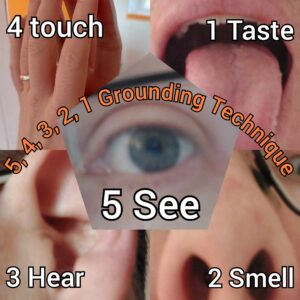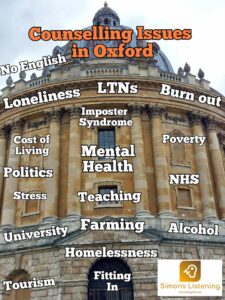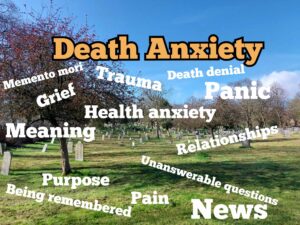This questionnaire is not diagnostic but goes over some of the ways that autism can affect a person. The aim is for you to complete it to reflect and gain self-awareness. You may choose to share this questionnaire with another person for example your counsellor, but please be mindful that there will be a lot of personal information on this when you complete it. You are free to skip any questions and you do not need to complete the whole form in one go, nor will every question necessarily apply to you.
1. Diagnosis
Do you have a diagnosis of autism spectrum condition?
If not, would you like a diagnosis and do you know how to get one?
Take a moment to consider some positives and negatives about getting a diagnosis.
2. Learning Difficulties
Do you have any learning disabilities?
If so, how do they affect you?
Do you need any support or carers present if you go for a meeting such as counselling?
3. Other Neurodivergences
Do you identify as (or are diagnosed with) having other neurodivergences such as Attention Deficit Hyperactivity Disorder (ADHD), Dyslexia, Dyspraxia, Obsessive Compulsive Disorder (OCD), or others?
If so, briefly explain how this affects you?
How does this interact with your Autism?
Do you know where you could go for support with your other neurodivergences?
4. Social Communication
4.1. Communication Preferences
Do you prefer to communicate verbally, and if not, what is the best way to communicate with you?
Do you use any aids to communication such as PECS or Makaton sign-language?
Having a different communication style or not being understood or able to communicate can be a source of frustration for people. Do you find a lack of understanding impacts on your mental health?
4.2. Auditory Processing
How do you find real-time (synchronous) conversation with another person? For example, how safe does this feel on a scale of 1 – 10, or do you feel that you have enough time to process what someone is saying?
What are the best mediums to communicate with you such as video messenger, text, calls, web-based chat, or maybe something creative such as your favourite game?
4.3. non-literal communication
How comfortable do you feel with non-literal communication for example sayings, irony or sarcasm, and humour?
If you are unsure what someone means when they say something, how are you able to check their intention and meaning?
Do you use echolalia (repeating the same phrase) either immediately or using that phrase later? If so, are there any examples that would be important for others to understand what you are trying to communicate.
Do you use other tools to enhance your communication, for example memes or emojis?
5. Social Interaction
How able and comfortable do you feel when you interact with others socially?
5.1. Social Etiquette
Do you often feel that you struggle to understand social rules and experience a sense of ‘getting it wrong’ when you try to read an environment?
5.2. Reading Others
How well do you feel you are able to understand what others are communicating to you?
5.3. Eye contact and Physical touch
5.3.1. Eye Contact
How comfortable are you with eye contact? From this question, it could be important that professionals or friends/family know that you are engaged in conversation even if you are not looking at them.
5.3.2. Physical Touch
How comfortable are you with physical touch such as hugs or handshakes?
6. Social Imagination
6.1 Routine and Structure
How important is Routine and Structure to you?
Do you use any tools to help you predict your day or tasks, for example Social Stories or a timetable?
How do you prepare for changes in your routine; and when your routine does change, how do you regulate yourself?
6.2 Stimming
How do you Stim (are there any self-regulating repetitive behaviours you do such as rocking, hand flapping, making a certain noise, or using a fidget toy)?
Has the way you stim, or other repetitive behaviours, ever felt like a problem for you, for example does it sometimes injure you or make you stand out and create unwanted attention?
6.3 Time Keeping
How important is time keeping to you?
How comfortable are you with physical touch such as hugs or handshakes?
6.4 Special Interests
What are some of your Special Interests
What benefits have you found from your Special Interest(s)?
Does your special interest ever get in the way of you making friends or participating in other activities?
How can we use your special interest to interact?
If we go off topic because of your special interest, what would you like us to do? Can we notice this and relate it or return to the topic at hand?
7. Sensory Processing
Do you identify as having a Sensory Processing Disorder? The following questions go over ten senses to look at hyper or hypo sensitivities, and how to explain them/regulate.
7.1. Physical Touch
Do you find you are either over or under sensitive to physical touch?
You may want to consider how this affects your diet, clothing, activities you enjoy, sex life, and physical gestures like handshakes.
7.2. Taste
Do you find that your sense of taste is over or under sensitive?
How does this impact on your diet or going out for food with others?
7.3. Smell
Do you find that your sense of smell is either over or under sensitive?
Does this ever put you in danger, impact on your hygiene, or mean that you struggle to access environments because the smell is overwhelming?
7.4 Vision
Do you find you are over or under sensitive to light/brightness or to vibrant colours?
Are you over or under sensitive to background visual information such as people in a crowd or a flashing sign?
Are you at risk of danger from not noticing visual stimuli for example cars when you are crossing the road?
Do you use any tools such as sunglasses or eye masks to regulate yourself if you are overwhelmed by visual information?
7.5. Auditory
Are you over or under sensitive to sounds?
How do you cope with background noises or other people speaking when you are trying to have a conversation?
Do you use any tools to help regulate yourself for example ear plugs, or a predictably noisy stimming toy?
7.6. Proprioception
Do you find that you are either over or under sensitive to the position of your limbs such as your hands and feet?
Do you find that others sometimes call you clumsy, that you spill or bang into things, that you struggle with fine motor skills such as holding a pen to write with, or that you are prone to joint injury?
Do you find you struggle to be aware of the personal spaces of neurotypical people – either standing too close or too far in conversation?
7.7. Vestibular
How do you find your sense of balance? Do you find that you get dizzy or car sick easily, or that you need to rock or spin to feel regulated?
7.8. Pain
Are you over or under sensitive to external sources of pain? Do you find that you are often unaware when you are injured such as finding cuts and burns that you don’t recall, or perhaps you are very intolerant and notice pain strongly?
How sensitive are you internally to pain, such as noticing when you have a stomach or tooth ache? Do you find you often need to go to the doctors, or perhaps you don’t notice when you have a health problem.
7.9. Interoception
Are you over or under sensitive to temperature both outside and within yourself, or get told you are dressing inappropriately for the weather?
Do you find it hard to know when you are hungry or thirsty, struggle to stop eating/drinking, or find your mood deeply affected by hunger?
How is your sense of tiredness? Do you find you are constantly fatigued, or perhaps struggle to know when it is time for bed?
When you are overexerting yourself during exercise or activity, how sensitive do you feel to this?
7.10. Emotions
How well do you feel able to identify what emotions you are feeling?
How important to you is emotional language?
How do you know when you are feeling dysregulated?
How can you describe feelings if you are discussing what is going on with you e.g., with a friend or therapist. You may, for example, use images, creative work, or use different stories from your life to connect with a feeling.
8. Other Physical
8.1. Diet
Do you have a restricted diet (<20 food items, that might impact on your nutrition and comfort if you go out for food with others)? Or are there other sensitivities related to food that you haven’t mentioned?
Do you find that your stomach is oversensitive? This may mean that certain foods affect you and cause things like diarrhoea, bloating, acid reflux or incontinence.
Do you find that you eat certain things that are not food, such as pennies or paper (pica)? If so, are you aware what need it is meeting when you do?
8.2. Allergies
There is some evidence that having autism will increase your risk of having allergies. Do you have any allergies that others need to be aware of such as to pet hair, certain foods, or fabrics?
8.3. Sleep
Do you find you have issues either getting to sleep or staying asleep?
Are screens an important way for you to relax, but sometimes get in the way of your sleep?
8.4. Processing time
When someone asks you a question, or you are in a social situation, do you often find you do not have time to think and respond?
If it is taking you some time to answer a question, what is the best way to check in with you e.g., leaving a few more seconds, asking the question again, rephrasing the question?
8.5. Learning styles
Do you know which learning style suits you best (visual, auditory, reading & writing, or doing)?
How can others communicate with you in a way that most suits your learning style?
9. Behaviour
9.1. Masking
Do you find that you perform (mask) to fit into the world around you?
Would you be able to give a percentage, of the amount of time you mask when you are around others?
Are there environments where you unmask, and what does unmasking look like for you?
Do you find that you have a sense of anxiety or dread at situations where you will need to perform, or exhaustion from not getting space to unmask?
9.2. Behaviours that Challenge
Do you, or have you been told that you, ever display Behaviours that Challenge including: Sensory Overload, Meltdowns, Outbursts, Persistent Demand Avoidance e.g. when you are overwhelmed?
Could you very specifically tell me about one of those instances?
What was happening in the environment around you?
Do you have any awareness of what/who might have caused the instance?
How did you feel during this?
Were you or other people at any risk of harm?
What did the behaviour specifically look like (e.g. shouting, biting, breaking something, running away)?
When you behaved this way, what was the consequence (e.g. did the overwhelming sense reduce, did people leave you alone…)?
Looking back on the behaviour, how do you feel about what happened?
Are there alternative behaviours we could use when you are overwhelmed to communicate and get your needs met?
If this happened again, what would be the best way to help you feel regulated and for you and others in the room to feel safe again?
10. Mental Health, Support, and Living in a Neurotypical World.
10.1. Mental Health
Do you think that you have a mental health condition (whether diagnosed or not?)
How can others know when you are struggling with your mental health?
What is the best way to support you on a bad day?
10.1.1. Anxiety
How do you know when you are feeling anxious?
Do you suffer with social anxiety? If so, are you able to specify what it is that you are fearing?
Does your anxiety present in other ways, for example with flashbacks, phobias, panic, or around things that are hard to control?
10.1.2. Obsessive Compulsive Disorder (OCD)
Do you suffer with OCD, or OCD-like traits where you feel compelled to do things in a certain way and feel a disturbance if you don’t?
Are there certain things that are important to you for you to feel settled and safe e.g. cleanliness, order, security; and is there a way for you to share how important this is to you so others can be mindful?
10.1.3. Grief
Is there anyone who has died that is especially important to you, and can provoke some strong feelings when we take time to remember them?
Were you happy with the way the funeral went (if there was one) and how you have been helped to grieve them? If not, is there a unique way you would have liked to have grieved your loved one?
Would you like to spend some time talking about them and remembering them? How might that look? e.g. are there some photos you could look through or a place to visit.
10.1.4. Loneliness
On a scale of 1-10, how happy are you with your current friendships and family relationships?
Can you think of an environment where you felt like you belonged or were understood?
If you would like more friends, do you know of any groups or settings where you can meet similar minded people?
What is getting in the way of you finding relationships that meet your needs?
Would you like a romantic relationship, and if so are there any things around this that you feel anxious about?
10.1.5. Trauma
Do you consider yourself to be suffering with trauma?
Because of the traumatic event(s) that happened, do certain things trigger you into a trauma response? If so, how have you managed to adapt your life to avoid/control/escape/regulate these triggers?
Is there a safe space for you to be able to process some of this trauma information, for example a professional you know you could speak with?
10.1.6. Suicide
Do you ever get thoughts of suicide or dying? If so, have you ever spoken with someone about this e.g. Samaritans (call 116 123)?
Do you have any awareness about what need these suicidal thoughts are meeting? E.g. to escape, be noticed, punish oneself, self-critical thoughts on life?
If you’ve identified a need that’s being met, is there another way to meet that need when suicidal thoughts come to mind?
10.1.7. Self-harm
Do you use self-harm (e.g. cutting, using substances, head banging, disordered eating, reckless behaviour…) to meet your needs?
When you use self-harm what need is being met (e.g. punish self, control, to soothe, regulate strong feelings, managing sensory overwhelm?)
Now we have identified a need, is there another way that need can be met or can we reduce the harm we do to ourselves (e.g. instead of cutting, could we draw on our wrist with a red fountain pen?)
10.2. Abuse
10.2.1. Bullying
Do you consider yourself the victim of bullying, or were you bullied when you were in school?
Is there a trusted person you can speak with about the bullying, or someone that could support or protect you? If you are now safe, perhaps there might be someone you could speak with to help with the emotional wounds we can take from being bullied?
10.2.2. Exploitation & abuse
Are you the victim of exploitation or abuse?
This may be being physically injured, sexually assaulted/pressured into sexual acts, family/partners who abuse us, emotional abuse, an organisation that excludes/discriminates against us, having our money taken from us or controlled, or being left on our own when we cannot look after our own care needs?
Do you know a person you can trust to report this to? It may mean that a safeguarding concern needs to be raised or other organisations/charities/police can help to keep you safe?
How do you feel about reporting the abuse? What is blocking you from getting support?
10.3. Support
What support do you have from your family, partner, carer, or household?
What support do you have from your local authority such as the autism team, EHCP at school, support workers, Safeguarding, Care Assessments, GP, benefits, or social worker?
What support do you have from the private or charity sector such as training, therapy, social groups, & employment support?
Are there any areas of your life that you could do with more support around that you are not currently getting? If so, do you know how you could find people/charities that support in this area?
10.4. Therapy
Have you had therapy before, and if so, how did you find it?
Do you know much about different therapeutic modalities, or what would be important to you in a counsellor?
Can you think about any needs you might want your therapist to be aware of before you start working together? This may mean communication preferences, stimming, how you bring in special interests, eye contact…
If you seek counselling, do you know what you would like to get from your sessions?
10.5. Inclusive Environments & a Neurotypical World
Use this space to consider the environments you are part of, and how in many ways it isn’t austism that limits us, but the accessibility of those environments for autistic people. Now that you have gone throught this sheet, you have considered how your autism uniquely affects you; you can consider how those enviornments and the world could be more accepting and welcoming for you
Special thanks to Sophie’s Proof Reading for copy editing, and Cat Abrams & Zak Martell for their feedback
Simon is a Person-Centred Counsellor working remotely or face to face in Oxford. He offers a relational approach to counselling at your pace and respecting your unique way of processing, communicating, and experiencing the world. Feel free to follow me and get in contact if you would like to work together.







